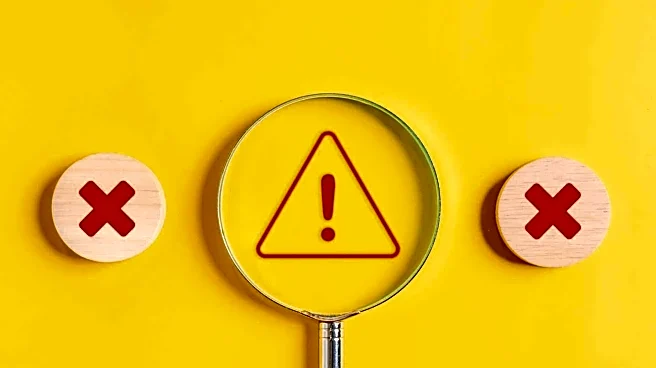What is the story about?
What's Happening?
Medical professionals are raising awareness about warning strokes, known medically as transient ischemic attacks, which can precede full-blown strokes. These attacks are characterized by sudden-onset symptoms of neurological injury that resolve on their own, but they are considered serious medical conditions that require immediate attention. According to Dr. Brandon Giglio, director of vascular neurology at NYU Langone Hospital—Brooklyn, about 85% of strokes in the U.S. are ischemic, caused by a lack of blood flow to the brain, while 15% are hemorrhagic, resulting from a ruptured blood vessel. Warning strokes can occur days, weeks, or months before a major stroke, and up to 1 in 5 individuals experiencing a warning stroke may suffer a stroke within 90 days if untreated. The symptoms of transient ischemic attacks mirror those of strokes, including changes in balance, vision, facial droop, arm weakness, and speech difficulties.
Why It's Important?
Understanding and recognizing the symptoms of warning strokes is crucial for preventing major health crises. These transient ischemic attacks serve as critical indicators of potential strokes, which are a leading cause of death in the U.S., affecting nearly 800,000 people annually. Early detection and treatment can significantly reduce the risk of permanent neurological damage and improve patient outcomes. Public awareness campaigns and education on the signs of stroke, such as the 'BE FAST' mnemonic, are essential for timely medical intervention. Addressing risk factors like high blood pressure, high cholesterol, and diabetes through lifestyle changes and medical management can further mitigate the risk of strokes.
What's Next?
Individuals experiencing symptoms of transient ischemic attacks are advised to seek immediate medical attention. Emergency services should be contacted at the onset of symptoms, and patients should communicate effectively with healthcare providers to ensure prompt treatment. Public health initiatives may focus on increasing awareness and education about stroke symptoms and prevention strategies. Healthcare professionals emphasize the importance of managing underlying health conditions and adopting healthier lifestyles to reduce stroke risks.















